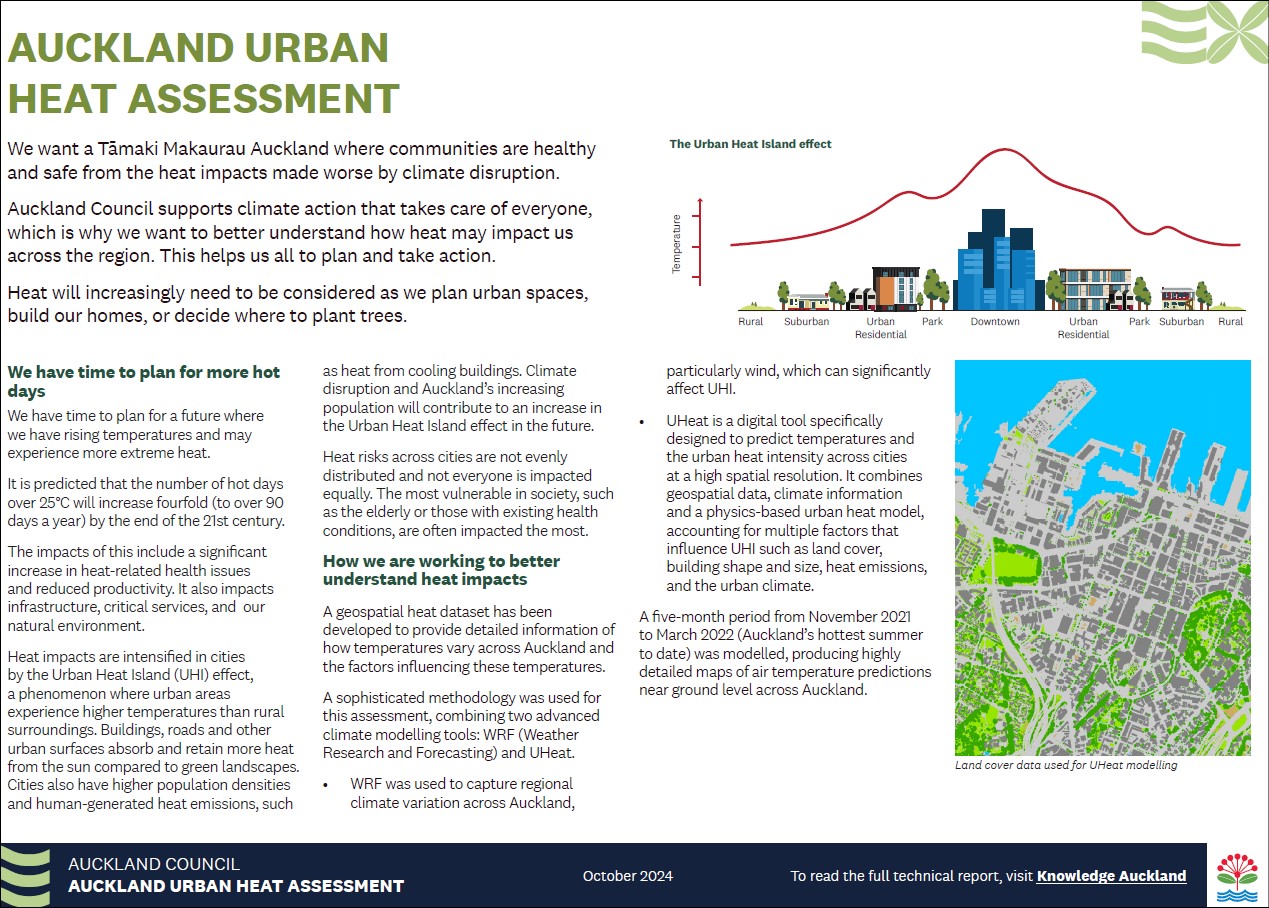Auckland urban heat assessment. Summary
Author:
Arup New Zealand LimitedSource:
Auckland Council, Arup New Zealand LimitedPublication date:
2024Topics:
EnvironmentExtract
We want a Tāmaki Makaurau Auckland where communities are healthy and safe from the heat impacts made worse by climate disruption.
Auckland Council supports climate action that takes care of everyone, which is why we want to better understand how heat may impact us across the region. This helps us all to plan and take action.
Heat will increasingly need to be considered as we plan urban spaces, build our homes, or decide where to plant trees.
We have time to plan for more hot days
We have time to plan for a future where we have rising temperatures and may experience more extreme heat.
It is predicted that the number of hot days over 25°C will increase fourfold (to over 90 days a year) by the end of the 21st century.
The impacts of this include a significant increase in heat-related health issues and reduced productivity. It also impacts infrastructure, critical services, and our
natural environment.
Heat impacts are intensified in cities by the Urban Heat Island (UHI) effect, a phenomenon where urban areas experience higher temperatures than rural surroundings. Buildings, roads and other urban surfaces absorb and retain more heat from the sun compared to green landscapes. Cities also have higher population densities and human-generated heat emissions, such as heat from cooling buildings. Climate disruption and Auckland’s increasing population will contribute to an increase in the Urban Heat Island effect in the future.
Heat risks across cities are not evenly distributed and not everyone is impacted equally. The most vulnerable in society, such as the elderly or those with existing health conditions, are often impacted the most. ...
Arup New Zealand Limited, Auckland Council, October 2024
See also, the full report: Auckland urban heat assessment. Technical report
Online resources
Predicted urban heat island effect (Auckland Council Open Data)
